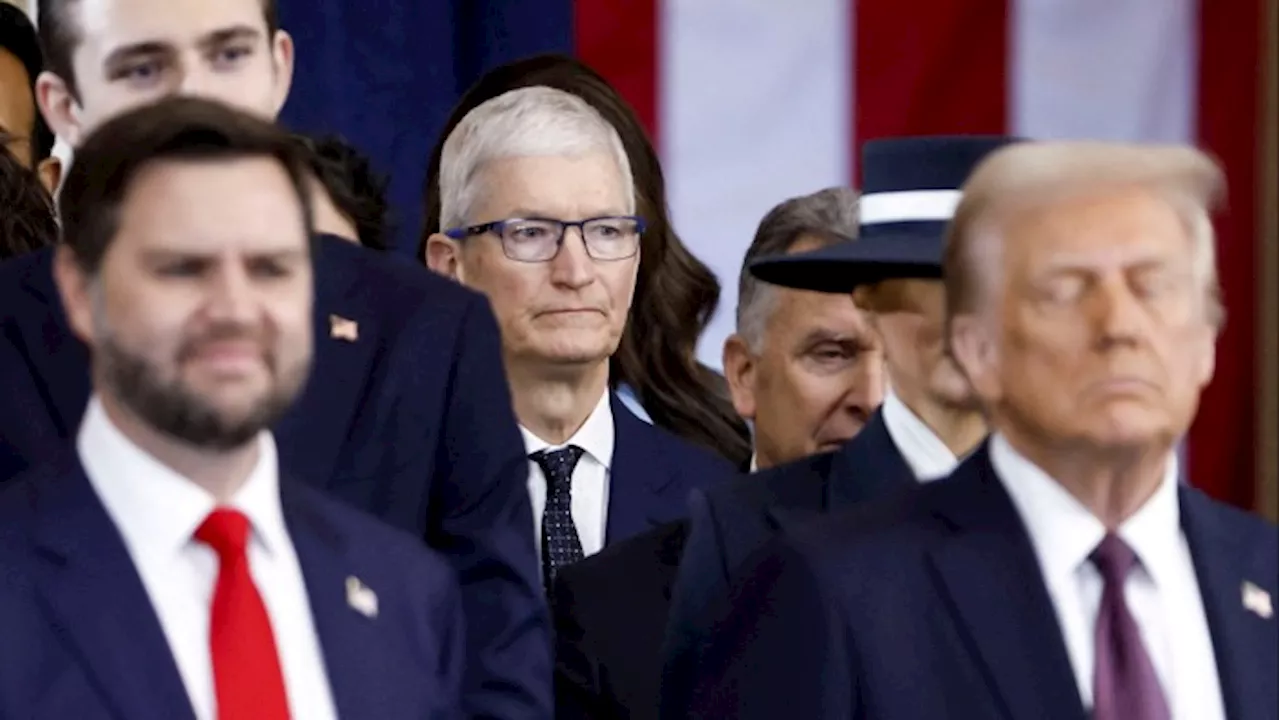The article analyzes the reasons behind Apple's recent stock decline and the fading hype surrounding GLP-1 drugs. It explores the impact of a potential tariff exemption for iPhones, legal issues with Google payments, and concerns over growing competition in the pharmaceutical sector.
Good morning. Here is how much the market discounts what the new president says: speaking at Davos, Donald Trump said he would demand that interest rates drop immediately. Later in the day, he said he planned to talk to the chair of the Federal Reserve about it. If any other president in the past 40 years said that, the bond market would have had kittens, and it would be the biggest story in the world. But the market did nothing, and the story didn’t make a homepage. Literally no one cares.
Email us: [email protected] and [email protected]. Also, for UK readers: the FT’s annual bonus survey is open for entries. It’s anonymous; it’s not just for bankers; takes three minutes to complete; and the findings will be written up in the FT. This year, the FT is asking folks about how pay policies have shifted following the removal of the banker bonus cap, which will mean much bigger bonuses for some, but lower base pay for many others. Click here to take the survey. Yesterday we presented a tidy theory of the Magnificent Seven’s underperformance in the past month or so. Considered as an asset class, the seven are the new defensives stocks — companies with great brands that can grow even in a slowing economy. But the market at the moment, far from playing defence, wants exposure to economic growth through cyclical stocks. There’s a little problem, though: most of the decline in the seven comes down to one company. Apple is down 14 per cent since Christmas. Tesla is down 11 per cent, but is only a third of Apple’s weight in the S&P 500. The rest of the seven are meandering along, a bit above (Nvidia) or below (Alphabet) the performance of US big caps, generally. We could repurpose our argument to be just about Apple, which very clearly is a defensive stock, rather than all the Magnificents. But there are specific things going on with the company that explain its even steeper decline. In April of last year, after another bout of underperformance from the iPhone maker, we wrote a piece called “What’s wrong with Apple?” We considered six explanations: We were not too impressed with any of those arguments then. Our instincts turned out to be good: the stock rose 50 per cent from when we wrote the piece to the end of the year. But now, all six worries have gotten worse. Even after the recent sell-off, the stock’s price/earnings valuation is a third higher than it was back in April. The sales growth and AI issues have come together: consumers have not demonstrated wild enthusiasm for AI-enabled phones in general, and the perception that Apple is lagging behind Android on that tech has grown. This casts doubt on the idea that AI will drive a big iPhone upgrade cycle. As Craig Moffett of MoffettNathanson research sums up: The weakness of defensives we discussed yesterday. An ascendant and aggressive Trump increases the odds that Apple will not get a tariff exemption for iPhones (Edison Lee of Jefferies estimates 90 per cent of which are made in China), and makes it more likely that Chinese consumers will become more hostile to the company’s products. The legal issues are perhaps the most acute risk. The judge in the Google search antitrust case has ruled the company’s payments to Apple for search traffic are illegal. These payments amount to perhaps $16bn or more a year, more than 10 per cent of Apple’s operating earnings in the US. CFRA Research’s Nicholas Rodelli put 60 per cent odds on the legal remedy cutting the payments by at least half. Apple still looks expensive to us. Let us know what you think. Back in October, we wondered if there might be a GLP-1 bubble — excessive hype around Eli Lilly and Novo Nordisk, the two companies making glucagon-like peptide-1 (GLP-1) obesity and diabetes drugs. At the time, the drugs had sent the two pharma companies to the top of their respective worlds: Novo Nordisk became the largest company in Europe by market cap, and Eli Lilly became the world’s largest pharma company. That bubble seems to have popped, or at least let out some air. Since we wrote on the subject, shares in Novo are down 31 per cent, and shares in Lilly are down 17 per cent. We offered a couple counterarguments to their soaring valuations — increased competition, Medicare price negotiations, pipeline issues, and lingering questions about demand. All have been at play since October: There is also a “vibes” based component to the sell-off. From Karen Andersen at Morningstar: Wall Street has started paring back its bets on future earnings. Here, for example, are the median revenue estimates for both companies for fiscal year 202
APPLE STOCK MARKET TECH STOCKS Glp-1 DRUGS PHARMACEUTICAL INDUSTRY TARIFFS LEGAL ISSUES COMPETITION
United Kingdom Latest News, United Kingdom Headlines
Similar News:You can also read news stories similar to this one that we have collected from other news sources.
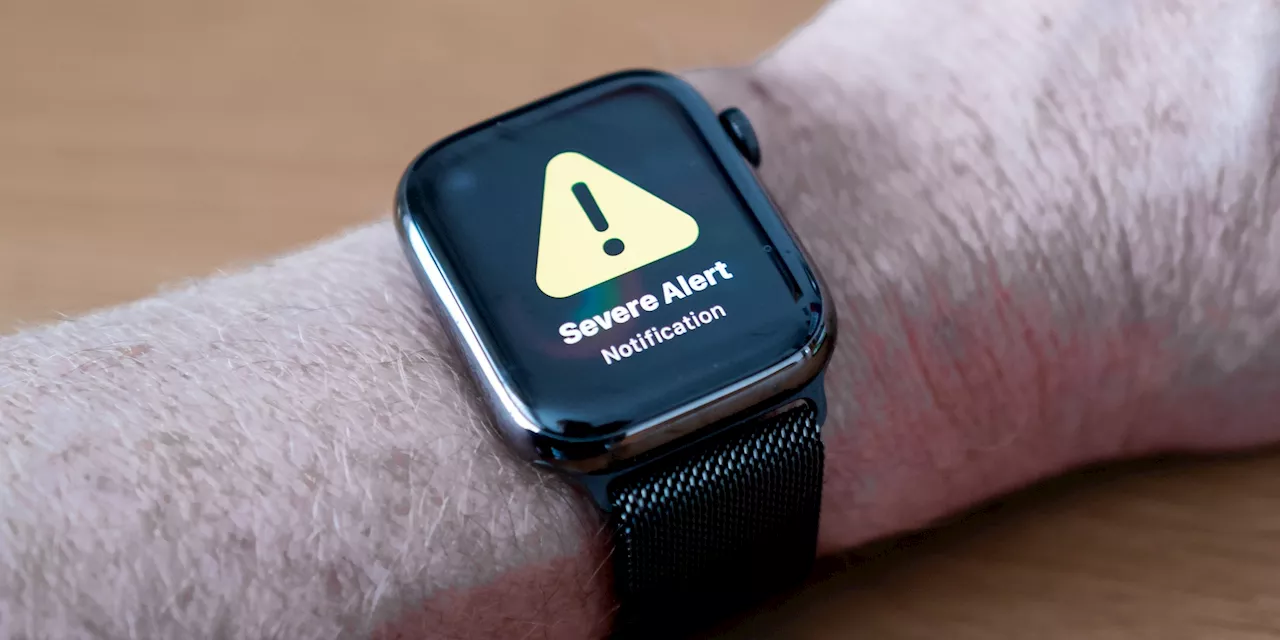 Apple Sued Over 'Forever Chemicals' in Apple Watch BandsA class-action lawsuit accuses Apple of selling watch bands containing harmful PFAS chemicals.
Apple Sued Over 'Forever Chemicals' in Apple Watch BandsA class-action lawsuit accuses Apple of selling watch bands containing harmful PFAS chemicals.
Read more »
 GLP-1 Medications Gaining Popularity for New Year's Weight Loss ResolutionsA new survey reveals that almost three-quarters of UK women are considering GLP-1 medications for weight loss in 2025. Previous attempts at dieting and exercise have often proven challenging, leading many to seek new solutions. While access and stigma remain concerns, the increasing interest in GLP-1s emphasizes the need for comprehensive support and care.
GLP-1 Medications Gaining Popularity for New Year's Weight Loss ResolutionsA new survey reveals that almost three-quarters of UK women are considering GLP-1 medications for weight loss in 2025. Previous attempts at dieting and exercise have often proven challenging, leading many to seek new solutions. While access and stigma remain concerns, the increasing interest in GLP-1s emphasizes the need for comprehensive support and care.
Read more »
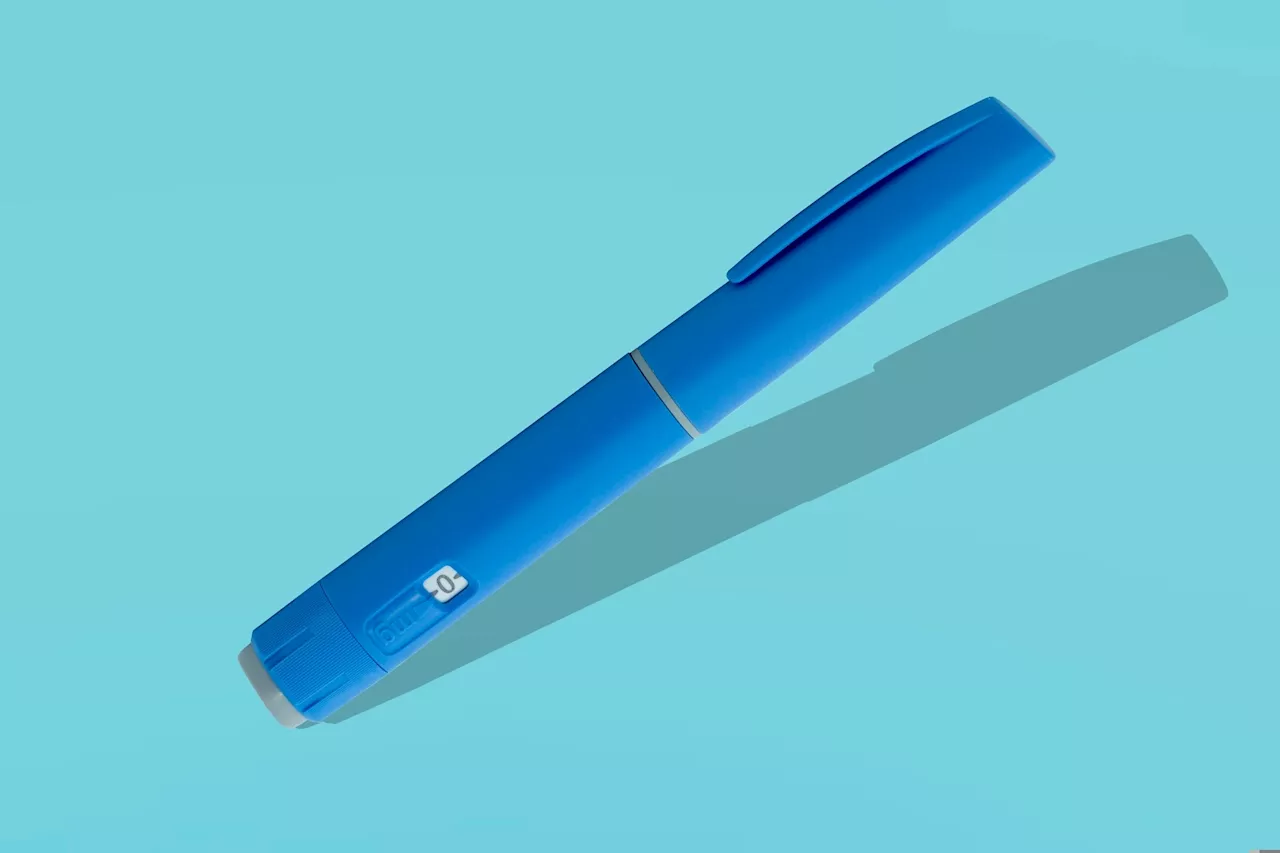 GLP-1 Receptor Agonists Show No Increased Risk of Suicide, Nationwide Study FindsA new study using the French National Health Data System (SNDS) found that GLP-1 receptor agonists (GLP-1 RAs), commonly used to treat type 2 diabetes and obesity, do not pose a heightened risk of suicide in patients with psychiatric disorders or obesity.
GLP-1 Receptor Agonists Show No Increased Risk of Suicide, Nationwide Study FindsA new study using the French National Health Data System (SNDS) found that GLP-1 receptor agonists (GLP-1 RAs), commonly used to treat type 2 diabetes and obesity, do not pose a heightened risk of suicide in patients with psychiatric disorders or obesity.
Read more »
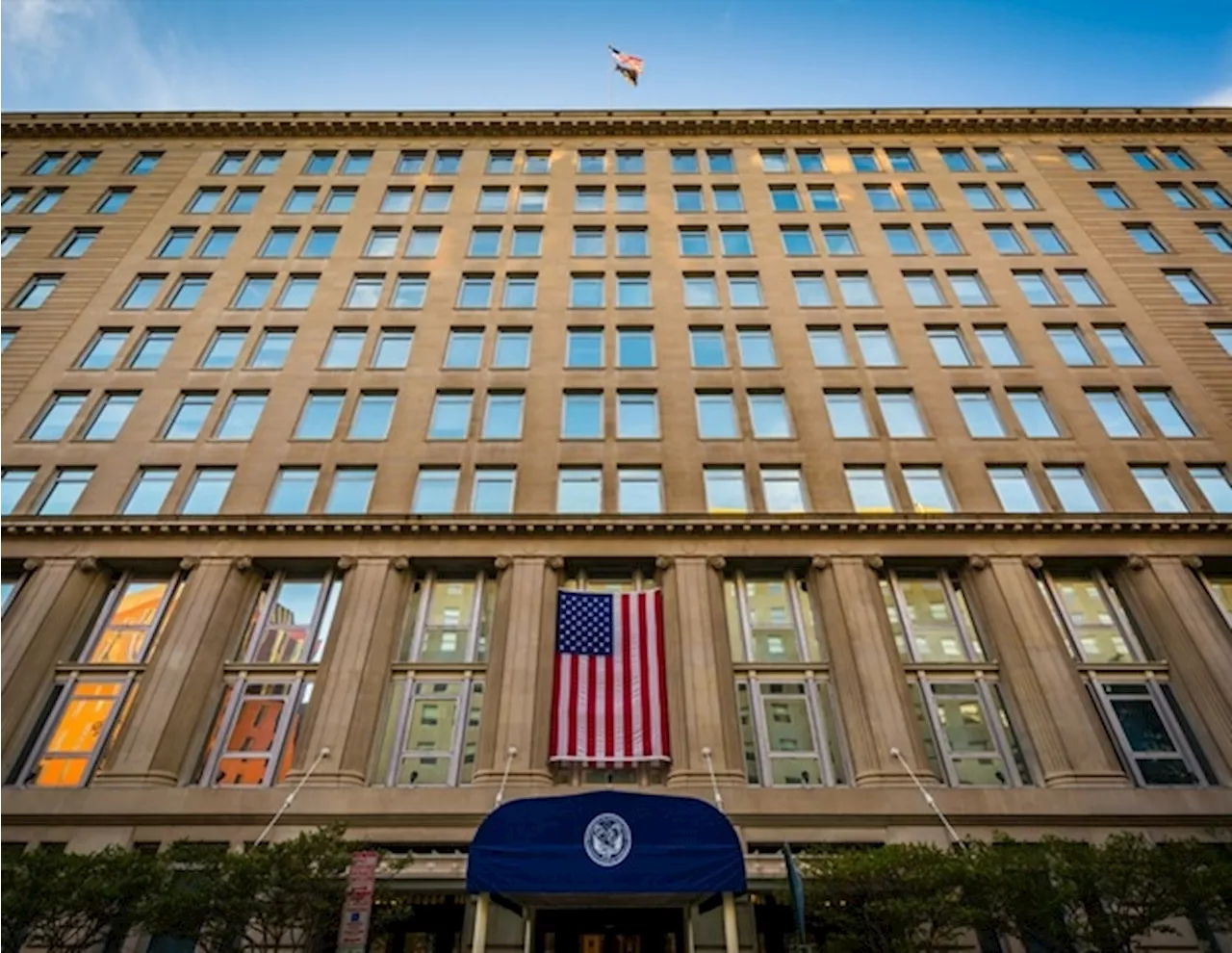 GLP-1RA Weight-Loss Drugs: A Comprehensive Evaluation of Benefits and RisksA new study from Washington University in St. Louis reveals both the positive and negative impacts of GLP-1 receptor agonists (GLP-1RA) on health, shedding light on their effects on cognitive function, addiction, and organ systems.
GLP-1RA Weight-Loss Drugs: A Comprehensive Evaluation of Benefits and RisksA new study from Washington University in St. Louis reveals both the positive and negative impacts of GLP-1 receptor agonists (GLP-1RA) on health, shedding light on their effects on cognitive function, addiction, and organ systems.
Read more »
 Remastered Porsche so rare only 25 were ever made could be yours for eye-popping £850KHollywood legend Steve McQueen’s Porsche which starred in iconic film is going up for auction at an eye-watering price
Remastered Porsche so rare only 25 were ever made could be yours for eye-popping £850KHollywood legend Steve McQueen’s Porsche which starred in iconic film is going up for auction at an eye-watering price
Read more »
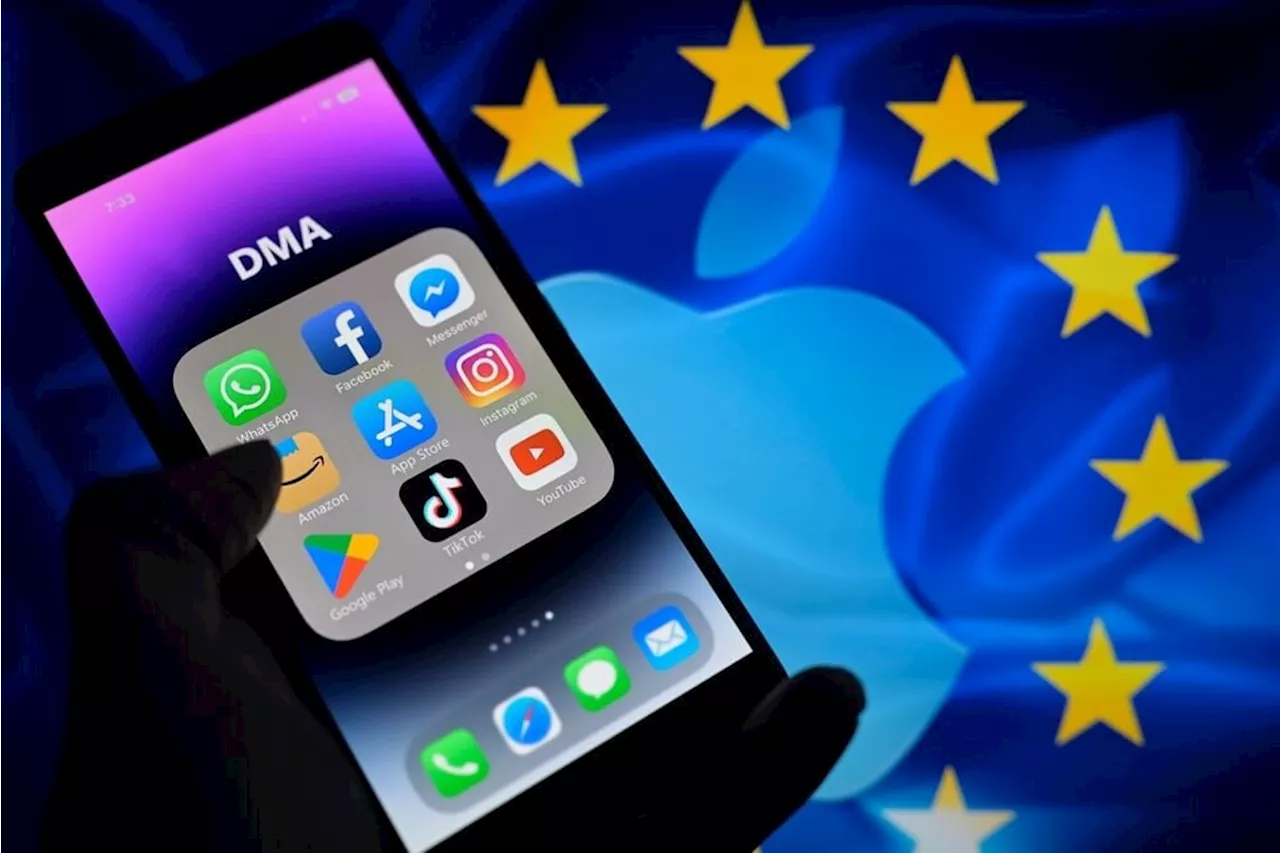 Digital Rights Groups Accuse Apple of Failing to Comply with EU's DMA Interoperability RulesDigital rights advocacy organizations are alleging that Apple is not fulfilling its interoperability obligations under the EU's Digital Markets Act (DMA). They argue that Apple's practices related to iOS connectivity features like AirDrop and its handling of developer requests for interoperability are deficient and hinder competition. The groups are calling on the European Commission to take action against Apple, including prohibiting the use of non-disclosure agreements (NDAs) at Apple's discretion, implementing a standardized interoperability request form, and mandating improvements to Apple's bug reporting system.
Digital Rights Groups Accuse Apple of Failing to Comply with EU's DMA Interoperability RulesDigital rights advocacy organizations are alleging that Apple is not fulfilling its interoperability obligations under the EU's Digital Markets Act (DMA). They argue that Apple's practices related to iOS connectivity features like AirDrop and its handling of developer requests for interoperability are deficient and hinder competition. The groups are calling on the European Commission to take action against Apple, including prohibiting the use of non-disclosure agreements (NDAs) at Apple's discretion, implementing a standardized interoperability request form, and mandating improvements to Apple's bug reporting system.
Read more »
